This question is related to the context described in Seeking a solution or a heursitic approxmation for the 3-partition combinatorial situation. The task is distribute approximately 48 pieces of inherited jewelry, each with its appraised value, to 3 inheritors so as to give each inheritor equal or nearly equal value. That question has been sufficiently answered for my legalistic purposes.
This new question arises out of my pursuit of solving this by enumeration. Totally unnecessary legally. Just an intellectual challenge now.
The problem now:
Assign to each item a unique index: probably just the integers 1 through 48. Now allocate these 48 to each of the 3 inheritors and eliminate the duplicates.
To make this example case simpler, assert that there are only 9 items and each inheritor is to receive exactly 3 items. (Note that this diverges from the previous goal of making the 3 bins of nearly equal value.)
How to eliminate the duplications in the sequence of items-to-bins?
Example:
Let bin 1 contain items {1,2,3}
Let bin 2 contain items {4,5,6}
Let bin 3 contain items {7,8,9}
There will be 6 duplications of the final values of this triplet-of-triplets:
{1,2,3}{4,5,6}{7,8,9}
{4,5,6}{1,2,3}{7,8,9}
{4,5,6}{7,8,9}{1,2,3}
{7,8,9}{1,2,3}{4,5,6}
{7,8,9}{4,5,6}{1,2,3}
etc.
Again, how to eliminate the duplications in the sequence of items-to-bins? Without enumerating the entire set of permutations-of-triplets. No, that's not quite right. I might have to temporarily grind out all the permutations-of-triplets. How to quickly eliminate the duplicated combinations-of-triplets based on what has been done a priori?
I can imagine something like inventing a function which, given any combination of 3 items, returns a unique value. Something using prime numbers? Except that many pairs of prime numbers sum to another prime number.
I crossposted the original question on mathoverflow. I apologize for not understanding the relationship between stackoverflow and mathoverflow.
 , which equals 280.
, which equals 280. 
